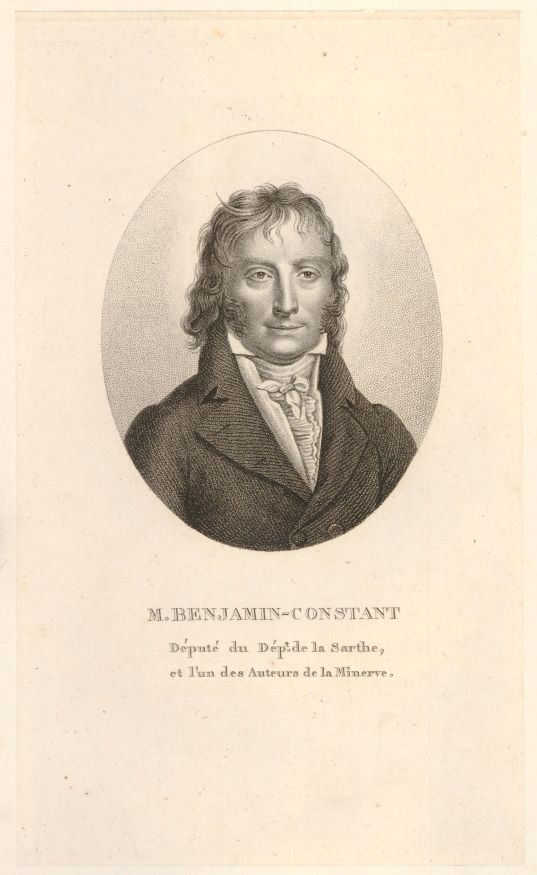Liberty Matters
Constant on Athens and Jerusalem

Professor Kahan began by comparing Constant to Kant, and I'd like to follow his lead into a different area relevant to On Religion – the relation between reason and revelation, often glossed as the relation between Athens and Jerusalem. Kant may be said to have intensified the tension between reason and revelation by insisting that morality be understood as autonomy: if morality is a law that we must give ourselves, then a revealed law, obeyed because some superior power revealed it, cannot be moral. Morality and reason seem to fall on one side, revealed religion on the other, of an unbridgeable divide.
Constant went in a different direction. On Religion emphasized a certain intertwining of religion and moral philosophy rather than an irreconcilable conflict between them. Some of the most interesting material occurs in Book IV, Chapter 11, where Constant considered Judaism's place in the history of the religious sentiment. In the previous chapter he had remarked upon the contests over power that arose between priests and kings in the biblical book of Samuel, a development that he thought paralleled political struggles in other societies where priests claimed power. In chapter 11 Constant allowed himself a diversion into a more general account of Judaism, taking care to explain that monotheism was more fundamental to Judaism than were the political struggles. What struck Constant was that the idea of a unitary divinity that was the source of morality appeared far earlier in human history than his understanding of the natural development of religiosity could explain. Constant remarked that there was no explanation other than revelation for the early appearance of this idea (p. 274). He argued that the fundamental idea of theism attached to human morality must have been divinely deposited in the Mosaic Law as a seed which then lay dormant for some 12 centuries, until human societies had evolved to a stage at which they were ready to cultivate and appreciate it.
The appropriation and improvement of this idea came in two stages, according to Constant: Plato "prepared minds" philosophically for theism, and Paul showed how incorporating Plato into Judaism could produce a fundamentally new and more mature religion -- Christianity. Constant summarized the contributions of Athens and Jerusalem in two sentences at the very end of the chapter:
Without Moses, it is probable that all the efforts of philosophy would have only plunged mankind into pantheism or a hidden atheism. As we saw at the beginning of this chapter, this was where the philosophy and the religion of the Indians ended. Without Plato, it is possible, humanly speaking, that overcome by the efforts of Judaizing Christians, Christianity would have become a Jewish sect. [pp. 185-86]
Though Constant mentioned India when outlining the twin dangers to which philosophy was subject, pantheism and atheism, he thought these dangers were present in European culture too, perhaps exemplified by Spinoza (pantheism) and Voltaire (atheism). Constant did not view liberal Protestant Christianity – the sort he favored – as merely a stage to pass through on the way to atheism. Instead, he regarded it as a generative synthesis of philosophy and monotheism.
Was Constant's effort to bring Athens and Jerusalem together through the historical development of the religious sentiment philosophically coherent? A post-Kantian way of pursuing this question would be to ask whether morality can be grounded in some way by revelation without collapsing into pure obedience, into what Kant called heteronomy. Does the Kantian dichotomy between autonomy and heteronomy stand in the way of a full appreciation of liberal religion? Has it obscured from our view a possibility that Constant saw?
Copyright and Fair Use Statement
“Liberty Matters” is the copyright of Liberty Fund, Inc. This material is put on line to further the educational goals of Liberty Fund, Inc. These essays and responses may be quoted and otherwise used under “fair use” provisions for educational and academic purposes. To reprint these essays in course booklets requires the prior permission of Liberty Fund, Inc. Please contact oll@libertyfund.org if you have any questions.